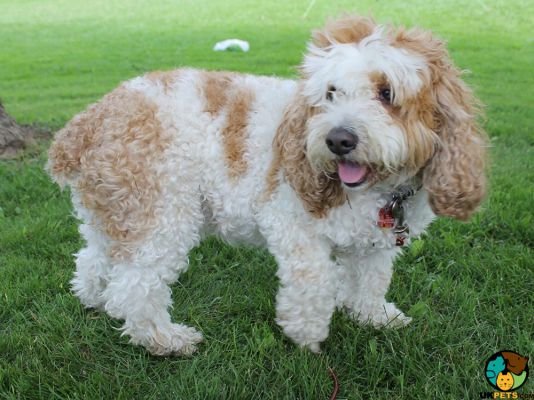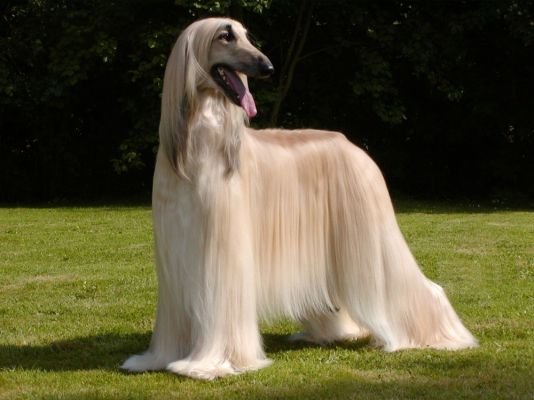





Meet the Cockapoo: The Cheerful Hybrid with a Flair for Fluff
Imagine a dog that’s part playful Cocker Spaniel, part brainy Poodle—that’s the Cockapoo! Known as the original “designer dog,” this mix has been melting hearts since the 1950s with its wagging tail, hypoallergenic coat, and knack for fitting into almost any family. But before you dive into those puppy-dog eyes, let’s unpack what makes this breed both delightful and demanding.
Quick Snapshot
| Trait | Cockapoo |
|---|---|
| Size | 10–15 inches (25–38cm) |
| Weight | 11–24 lbs (5–11kg) |
| Lifespan | 14–18 years |
| Coat | Wavy/curly, low to moderate shedding |
| Energy Level | Moderate (30–60 mins daily) |
| Barking | Occasional (alert but not yappy) |
Looks & Grooming Hacks
Cockapoos are a genetic grab bag—think “Cocker charm meets Poodle curls”:
- Coat Types: Their fur can range from tight Poodle-like curls to loose Cocker waves. Colors? Think cream, chocolate, black, or even merle patterns.
- Grooming 101: Weekly brushing keeps mats at bay. Curly coats need more attention (daily brushing!), while wavy types can skip a day or two. Pro tip: Trim hair around the eyes to avoid irritation.
- Bath Time: Every 4–6 weeks with a gentle shampoo. Overbathing? Big no—it strips natural oils.
- Ear Alert! Those floppy ears trap moisture. Clean weekly with vet-approved wipes to dodge infections.
Fun Fact: Some Cockapoos inherit the Poodle’s “hypoallergenic” rep, but no dog is 100% allergy-proof. Always spend time with one before committing!
Personality: Sunshine in Fur Form
Cockapoos are 70% “Velcro Dog”, 20% “Class Clown”, 10% “Gentle Observer”:
- Kid-Friendly? Absolutely! Their patience rivals a saint’s, though toddlers might get knocked over during zoomies.
- Pet Politics: Raised with cats? Besties! Other dogs? Instant BFFs. Early socialization is key to curb their inner squirrel-chaser.
- Training Trick: Use cheese or chicken bits! They’ll master “sit” in minutes… but “stay”? That depends on how interesting that butterfly is.
Key Insight: Bred as companions, they hate being alone. Left solo too long? Expect chewed shoes or serenades of sorrowful barks.
Pros & Cons
| Pros | Cons |
|---|---|
| Hypoallergenic (low-shedding!) | Prone to separation anxiety |
| Intelligent & eager to please | Regular grooming needed ($$$ at the groomer!) |
| Adaptable (city or countryside) | Health risks (ear infections, hip issues) |
Health & Nutrition
Diet Essentials:
- Adults: ½–1.5 cups high-protein kibble daily (split into 2 meals). Smaller Cockapoos eat less; active ones need more!
- Snack Hack: Carrot sticks or blueberries (low-cal + vitamin-packed!). Avoid overfeeding—they’ll guilt-trip you with those puppy eyes.
- Watch For: Hip dysplasia, progressive retinal atrophy (PRA), and ear infections. Annual vet checks are non-negotiable.
Exercise Musts:
- Morning sniffari walks (let them lead—they’re scent detectives!).
- Evening puzzle toys (hide treats in a muffin tin—mental gold!).
Spotting a Quality Cockapoo
| Trait | Healthy Pick | Red Flags! |
|---|---|---|
| Eyes | Bright, no discharge | Cloudiness or excessive tearing |
| Movement | Bouncy, no limping | Stiffness or reluctance to jump |
| Temperament | Curious but calm | Extreme shyness or aggression |
Ethical Breeder Checklist:
- Health clearances: Parents tested for hips, eyes (OFA/CERF), and PRA DNA.
- Meet both parents—should be friendly and well-socialized.
- Puppies raised in homes (exposed to kids/noise).
Final Thought
The Cockapoo isn’t just a pet—it’s a lifestyle. Ready for endless games of fetch, sofa snuggles, and a shadow who’ll follow you to the bathroom? Just remember: Their Poodle smarts + Cocker sweetness demand engagement. Skip this breed if you’re rarely home… but if you crave a loyal, big-hearted goofball, you’ll gain a friend who’s as unforgettable as their mismatched curls.
P.S. Rescue Tip: Check breed-specific rescues—many Cockapoos need homes due to pandemic-era impulse buys. Giving one a second chance? That’s true designer love.


